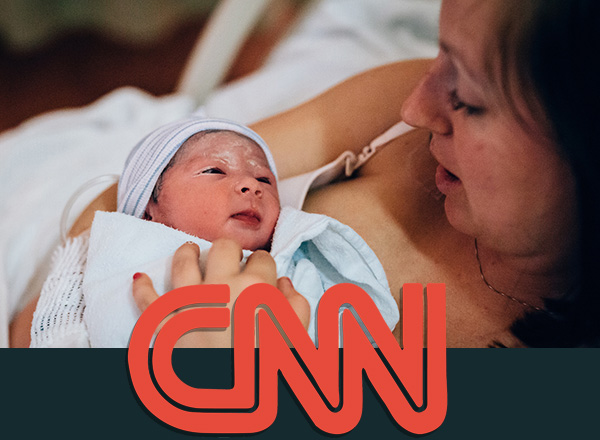What to Do After Embryo Transfer to Increase Success

The First Step Toward Success
The moment the embryo is transferred during IVF, hope kicks into high gear. You're officially in the "two-week wait," a time that can feel like a rollercoaster of emotions. But instead of sitting idle and stressing, there are intentional steps you can take right now. Understanding what to do after embryo transfer to increase success can bring peace of mind and may even nudge the odds in your favor.
Let’s uncover the best practices, science-backed tips, and human-centered insights to make this journey smoother and potentially more successful.
What to Do After Embryo Transfer to Increase Success
Taking care of your body and mind post-embryo transfer isn't just a hopeful gesture, it's a critical part of your IVF success strategy. Here's a breakdown of proven ways to support implantation and improve pregnancy chances after embryo transfer.
Stay Rested, But Don’t Just Lie in Bed
While many assume strict bed rest is a must, research suggests otherwise. In fact, being completely immobile may reduce blood flow and cause stiffness. A better approach? Rest for about 24 hours, then gradually return to light activities like walking or stretching.
Tip: Avoid strenuous exercise but keep your body moving gently. It helps blood circulation and reduces stress.
Eat Nutrient-Rich, Implantation-Friendly Foods
Preparing for embryo transfer and post-transfer care go hand in hand, especially with nutrition. Focus on a balanced, Mediterranean-style diet rich in leafy greens, fruits, lean proteins, and whole grains. Include foods high in folic acid, omega-3 fatty acids, and antioxidants.
| Fertility-Friendly Food | Benefit |
|---|---|
| Avocados | Healthy fats for hormone support |
| Berries | Antioxidants to fight inflammation |
| Leafy Greens | Rich in folate and iron |
| Salmon | Omega-3s for embryo development |
Avoid processed foods, sugar spikes, and high caffeine intake. Hydration is key too, drink plenty of water!
Prioritize Mental Health and Stress Management
Mental well-being has a surprisingly strong connection to fertility. High cortisol levels (the stress hormone) can interfere with hormone regulation and implantation.
- Meditation or deep breathing for 10–15 minutes daily
- Gentle yoga poses approved by your doctor
- Journaling emotions to release anxiety
- Talking openly with a fertility coach or therapist
Avoid Intercourse for a Short Period
Even though this may sound counterintuitive, many clinics advise abstaining from intercourse for 5–7 days post-transfer. This allows the uterus to stay calm and avoid contractions or infection risk.
Consult your fertility specialist to know what's right for your specific situation.
Say No to Alcohol, Smoking, and Excess Caffeine
If you're serious about knowing what to do after embryo transfer to increase success, this one’s non-negotiable. All three substances negatively affect implantation and early pregnancy health.
- No alcohol at all
- No smoking or secondhand smoke exposure
- Less than 200 mg caffeine/day (approx. one small cup of coffee)
Take Prescribed Medications on Time, Every Time
Those progesterone shots, estrogen pills, or any other fertility meds are critical for maintaining the right hormonal environment. Set alarms, reminders, and even involve your partner to ensure nothing is missed.
Consistency supports uterine lining and embryo attachment.
Stay Cool – Literally and Emotionally
Overheating from hot baths, saunas, or electric blankets may disrupt the delicate uterine environment. Skip these during the implantation window.
Instead, take lukewarm showers and wear breathable cotton clothing.
Emotionally, try to stay grounded. Easier said than done, but anxiety triggers hormonal imbalances. Engage in hobbies, nature walks, or supportive forums.
Sleep Soundly, for 7–9 Hours
A proper night’s sleep aids cellular repair, hormone balance, and mental clarity. Melatonin, naturally released during quality sleep, also plays a role in embryo implantation.
- Keep electronics away before bed
- Avoid sugar or heavy meals late at night
- Try relaxing herbal teas (e.g., chamomile)
Don’t Overthink Symptoms
It’s tempting to analyze every twinge or cramp. But early pregnancy signs often mirror PMS or progesterone side effects.
Avoid googling every symptom. Your body is unique, and implantation signs vary widely.
Use Positive Visualization Techniques
Mind-body connection plays a role in fertility. Many women report a sense of calm and control by using visualization exercises.
- The embryo attaching securely
- A glowing, healthy womb
- A peaceful, nurturing space
This might sound spiritual, but it's rooted in neuropsychology. Positive visualization can calm your nervous system and release beneficial hormones.
Know When to Take a Pregnancy Test
Patience is crucial here. Testing too early can give false negatives or positives. The general rule is to wait 9–12 days post-transfer for accurate results. Trust your clinic’s guidance, and don’t rush the process.
Preparing for Embryo Transfer: What You Should Do Before the Big Day
Preparing for embryo transfer is just as important as post-transfer care. Think of it as preparing your soil before planting a seed. Here’s how to do it:
- Follow your medication schedule religiously
- Eat clean and hydrating foods
- Avoid stress as much as possible
- Rest well the night before
- Wear comfortable clothes on the transfer day
Speak to your fertility team about supplements like CoQ10, prenatal vitamins, or baby aspirin, based on your body’s needs.
Your Takeaway Toolkit
Learning what to do after embryo transfer to increase success goes beyond just “waiting it out.” It’s about creating a nurturing environment, physically, mentally, and emotionally, that supports your embryo’s journey. From eating well and managing stress to following your doctor’s guidance and honoring your own intuition, each choice you make adds up.
Remember: You’re not powerless in this process. While you can't control every outcome, you can control how you care for yourself during this precious time. So breathe deeply, trust your path, and stay hopeful.
FAQs About What to Do After Embryo Transfer to Increase Success
Can I work after embryo transfer?Yes, light desk jobs are generally fine. Avoid strenuous physical labor or standing for long hours.
When can I resume exercising after embryo transfer?
Gentle walks are okay after 1–2 days. Avoid high-intensity workouts until advised by your doctor.
Is cramping normal after embryo transfer?
Mild cramping can occur due to progesterone or embryo implantation. Intense or painful cramping should be reported to your clinic.
Can I eat pineapple after embryo transfer?
The core of the pineapple contains bromelain, believed to aid implantation. Eat in moderation and consult your clinic first.
Should I avoid certain sleeping positions after transfer?
There’s no scientific evidence that sleeping on your back or side impacts implantation. Choose a position that lets you sleep comfortably.
What are the signs of successful implantation?
Symptoms may include light spotting, mild cramps, or breast tenderness, but the only way to confirm is a blood test from your clinic.

